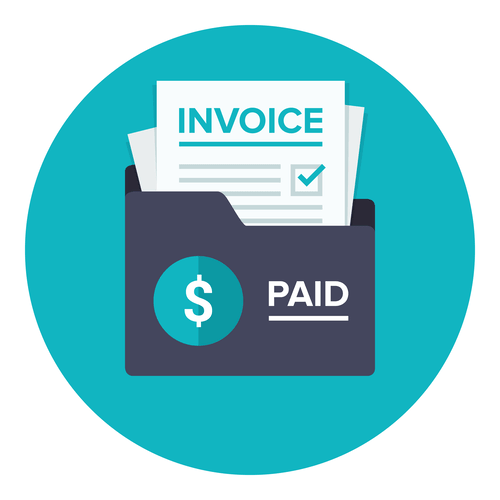
With more softwares and platforms being released every day, more tasks are being automated – and one might wonder if traditional roles, such as bookkeeping, are on the verge of extinction. For those interested in putting forth the effort and growing within their profession and their company, bookkeeping will remain a strong career option for years to come. A bookkeeper today serves in a more consultative and strategic role than in the past. Rather than representing the death knell of a storied profession, it means hungry, ambitious bookkeepers entering the market can expect opportunities to continue to present themselves. While technology streamlines processes, the human touch remains essential for Bookkeeping for Chiropractors understanding context, providing personalized advice, and building client relationships. Embracing the tech shift, rather than resisting it, positions us for future relevance and growth.

Editorial Note: The Demand for Bookkeepers is Expected to Drop by 6% in the Next Ten Years

By upskilling alongside artificial intelligence developments rather than competing against them, the bookkeeping profession promises to be very profitable for some time yet. The accounting talent crisis indicates the broader underlying issues in the accounting profession. Some of these issues are because of how clients work with their accountants. Staffing shortage poses a serious threat to the very fabric of accounting services firms.
- There are always small and mid-sized business owners seeking reliable financial partners to help budget, manage taxes, and surface insights from their accounts.
- There are many reporting consolidation and reconciliation tools that can take over tedious work.
- The granularity of this information requires someone able to work with the financial data and understand it.
- With over 15 years of experience in the industry, I have a deep understanding of the challenges that small and medium-sized business owners face when it comes to managing their finances.
- It might be pushing it to say “we’re all bookkeepers now” but it’s a statement that’s not far off.
- This is because machines can work for longer hours without tiring.
- I have been involved with accountancy now for nearly 20 years, and one of the most startling changes I have seen in that time is how the role of bookkeeping has changed.
How much do online bookkeepers make?
- And accountants play a crucial role in helping businesses make sense of all this data.
- There is a huge market for accountants who can explain numbers and add value.
- Also, the ‘do-it-yourself’ bookkeeper will always require occasional guidance or assistance from a trained financial professional.
- Over 300,000 accountants have left the field in the past two years, and fewer students are pursuing accounting majors or the CPA exam.
- Similarly, the rise of private equity has resulted in a sharp increase in complex transactions that reflect new approaches to deal making, financing, agreements, and accounting.
- In 2024 and for years to come, progressive bookkeepers who embrace change should have tremendous opportunities.
- Only in doing so will we be able to attract the talented, motivated CPAs needed by the businesses of today—and tomorrow.
The field is rapidly evolving, thanks to emerging global opportunities, ever-changing regulatory requirements, and complex new business models. Businesses will continue to need greater numbers of accounting professionals. We must is bookkeeping a dying profession be ready to commit to dismantling the hurdles that impede entry into the profession. Only in doing so will we be able to attract the talented, motivated CPAs needed by the businesses of today—and tomorrow. Many companies can function well most of the time with a small in-house accounting team. Tapping into expert support can also be meaningful as companies navigate operational changes, ensuring that any newly created financial reporting risks are mitigated by the proper internal controls.
- Specialists in areas like payroll, inventory or data analytics can command above-average incomes while leveraging technology to boost profit margins.
- The CPA can add more value than any C-suite member, thanks to their unique perspective, their access to information, their training and their experience.
- Accounting firms are responsible for preparing financial statements for businesses.
- Further, some of those most experienced professionals lack some of the software sophistication of new entrants.
How to prepare your accounting firm for the next storm
Things are gonna have to change in order to appeal to a group of Gen-Z learners that want to work differently. While technology has changed how bookkeepers work, it has also brought efficiencies that open up opportunities to be more client-focused, strategic and ultimately profitable. ● Initiative to keep learning – From mastering accounting software to staying on top of regulation changes, the learning curve never ends. While core bookkeeping isn’t going away, the day-to-day work is evolving thanks to off-the-shelf accounting platforms and automated tools. Bookkeepers now spend less time performing routine double-entry posting or issuing invoices, freeing them up for more analytical tasks. At QBench, a bookkeeper is thought of as a junior accountant or financial analyst.

Continue learning throughout your career

Edited by CPAs for CPAs, it aims to provide accounting and other financial professionals with the information and analysis they need to succeed in today’s business environment. By entrusting bookkeeping to a skilled professional, you can have peace of mind knowing that your finances are in order while freeing up time to focus on other crucial aspects of your business. This collaboration makes you confident in the fact that your financial foundation is strong and secure. As said by the experts above, despite the decrease in demand, bookkeeping is not expected to die as a profession anytime soon. Companies still need someone who understands their costs and revenues, their employees, vendors, and customers. The granularity of this normal balance information requires someone able to work with the financial data and understand it.

Oversight and review can then be focused on the high-risk areas that deserve manual attention. As the world evolves, accounting professionals need to keep up with the latest trends, news, and developments in the industry. As an accountant, you should be using technology to your advantage.
